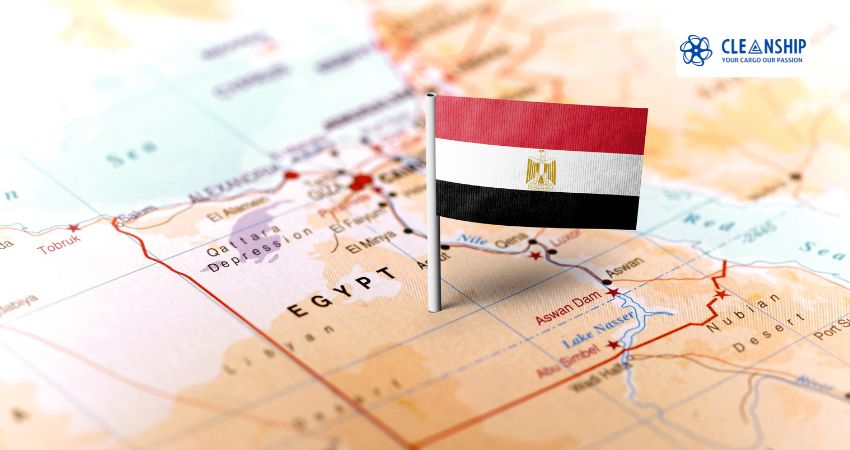According to NorthStandard, vessels carrying dangerous cargo to take extra precautions when calling at Egyptian ports, particularly during the current summer months when temperatures are notably high.
correspondent Eldib P&I has the below recommendations/measures to secure the protection of vessels and compliance with local regulations when calling at Egyptian ports:
1. Pre-Arrival Notifications: Submit detailed information about the dangerous cargo, including Material Safety Data Sheets (MSDS), to Egyptian port authorities well in advance to enable proper risk assessment.
2. Proper Labelling and Documentation: Ensure all containers holding unsafe materials are clearly labelled according to the IMDG Code, with correct and comprehensive documentation ready for inspection. According to Egyptian maritime law, shippers are needed to notify carriers if the goods being transported are dangerous.
The bill of lading must clearly indicate the nature of the goods, along with necessary precautions to mitigate risks. Failing to provide correct information can lead to liability for any damages that occur as a result.
3. Compliance with Local Regulations: Familiarize the crew with the specific requirements of Egyptian port authorities about dangerous cargo, including stowage, handling, and emergency procedures, with particular attention to heat sensitivity. The handling of dangerous materials is primarily regulated under the Environment Law No. 4 of 1994 and its implementing regulations (Decree No. 338 of 1995).
This law mandates that any handling, transportation, or disposal of unsafe substances must be done with a permit issued by the Egyptian Environmental Affairs Agency (EEAA). The regulations also detail specific procedures for packaging, transporting, and disposing of hazardous waste, ensuring that it doesn’t pose a risk to the environment (UNEP LEAP).
4. Coordination with Local Agents: Engage local agents for safe handling and transport of dangerous cargo within the port, ensuring all procedures are meticulously followed, especially under high-temperature conditions. Egypt is a member of the IMO, which means it adheres to international regulations such as the International Maritime Dangerous Goods (IMDG) Code. This code governs the transportation of dangerous materials by sea and is implemented in Egyptian ports.
5. Emergency Preparedness: Develop and rehearse emergency reaction plans that account for the increased risks posed by elevated temperatures, coordinating with port authorities for swift action in case of an incident. Carrying out drills and instructing the crew members regarding actions to be taken in an emergency situation with the use of emergency equipment is imperative to the safety of the crew and vessel.
6. Onboard Safety Measures: Equip your vessel with the required safety gear, including fire suppression systems, spill containment kits, and personal protective equipment (PPE), ensuring all are operational and accessible. Also, loading different types of dangerous cargo separately and store them in isolation.
The relevant IMDG stowage segregation requirements must be complied with at all times. It must be ensured that all DG containers are loaded in the planned stow position. Any discrepancies shall be brought to the notice of the Terminal planner / Central planner and / or local agent as required.
Read Also: Improving Boating Safety With AI Technology






Leave A Comment